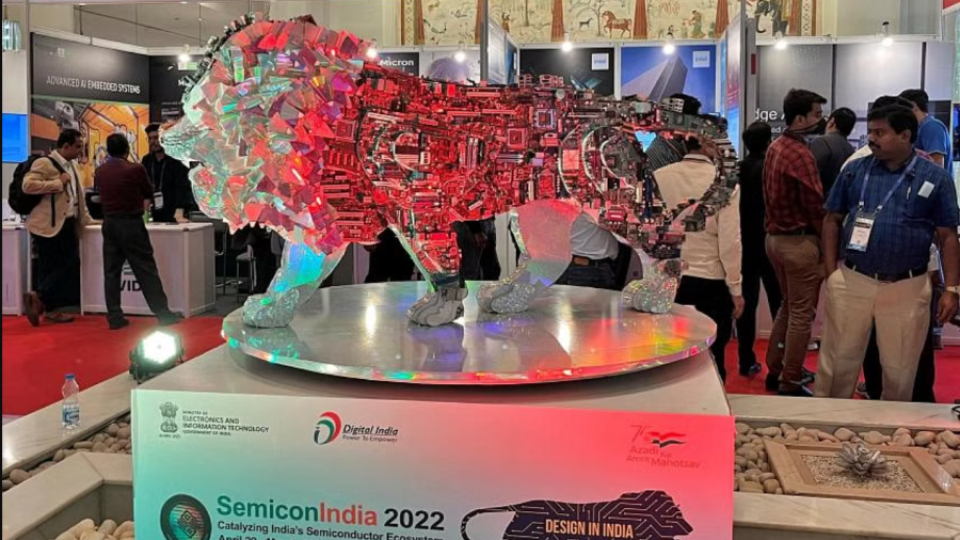August 11, 2023
NEW DELHI – A recent decision by the Indian government requiring firms to get a licence to import personal computers could hinder the country’s efforts to improve the ease of doing business, said trade experts and industry watchers.
The Commerce Ministry on Aug 3 announced that companies will need a government licence to import laptops, tablets, personal computers and servers, bringing an end to earlier unfettered imports, even as the South Asian country aims to be a global electronics manufacturing hub.
Amid an anticipated scramble for licences, confusion over incoming shipments and concern that the new rule would hurt consumer sales during the October run-up to the festivals of Durga Puja and Deepavali, the government pushed back implementation by three months to Oct 31.
While the Indian media reported that the government will not cap imports and will provide licences quickly, many commentators noted that the move was reminiscent of Licence Raj – a regime of strict government control and regulation of the Indian economy from the 1950s to 1990.
They said the new licence system had triggered some uncertainty.
The move is also reportedly aimed at weeding out Chinese firms seen as security risks.
“For India to build a strong domestic electronics manufacturing sector, it cannot escape being tied to the global value chains, which means allowing companies to import electronic components and laptops freely,” said Assistant Professor Anupam Manur at the Takshashila Institution, a Bengaluru-based independent think-tank and school of public policy.
“But, India has high tariffs on electronic components that go into manufacturing the laptops. Therefore, if India wants a manufacturing base, it needs to reduce tariffs and free up imports of components as well.”
Under Prime Minister Narendra Modi’s “Make in India” initiative, the government this year announced a US$2 billion (S$2.7 billion) incentive scheme to attract technology firms to manufacture IT hardware, including laptops and tablets.
This comes after a successful 2020 incentive scheme to push phone production in India, which leveraged companies seeking to diversify their supply chain amid the Covid-19 pandemic and worsening ties between China and the United States.
India, too, is dependent on China for IT hardware.
The Indian market for laptops and personal computers is worth around US$8 billion annually, with around 65 per cent of laptops and personal computers being imported, according to data from tech market research firm Counterpoint Research.
China accounts for 70 per cent to 80 per cent of these imports.
Still, domestic manufacturers have reacted positively and interpreted the new licence regime as being aimed at pushing them to make their products in India.
Indian electronics manufacturer Dixon Technologies, whose shares trended upwards after the licence announcement, said it would move in a “very aggressive” manner to capture market share.
“We feel strongly that the success story of the automotive sector – where India emerged as a manufacturing and export hub – could be replicated in electronics manufacturing,” said Dixon chief financial officer Saurabh Gupta.
The licence announcement also came after Indian conglomerate Reliance launched its JioBook laptop, which has an 11-inch HD screen and is priced at 16,499 rupees (S$270).
Lenovo, HP, Dell, Apple and Acer were the top five companies in the personal computer segment in the second quarter of 2023, according to Counterpoint Research.
Apple, which started assembling the iPhone 14 in India in 2022 and now has 7 per cent of its global manufacturing share in the country, does not make iPads or MacBook laptops in India.
Apple did not respond to an e-mail sent by ST seeking comment on the licence requirement.
The Indian laptop manufacturing industry is seen to be still at a very early stage. Most parts are imported, including high-end chips, with a few items such as batteries being manufactured locally.
Other issues, according to a 2022 India Cellular and Electronics Association report, include a lack of adequate infrastructure, domestic supply chain and logistics, inadequate availability of quality power, limited design capabilities and focus on research and development by the industry, and inadequacies in skill development.
But Mr Pankaj Mohindroo, the association’s founder and national president, noted that the ecosystem is improving. “The smartphone ecosystem is so vibrant, the same companies that make these products can make tablets and personal computers, which are a bit easier to manufacture than smartphones,” he said.
“India is becoming more competitive. The power situation has improved, there is the goods and services tax, which has integrated the country into one tax. There is substantial improvement in the competency,” he added.
“We have to do it. It’s the call of the nation that we should be the major manufacturing hub of the world, not just made for India but on a global scale.”
But analysts noted that much depended on whether firms will make the additional spending amid slowing global growth.
Some also wondered why the government is introducing licences when an incentive scheme had been announced.
“Why was that (incentive scheme) not enough to make laptop manufacturing competitive in India?” asked Professor Partha Chatterjee, head of the Department of Economics at Shiv Nadar University.

